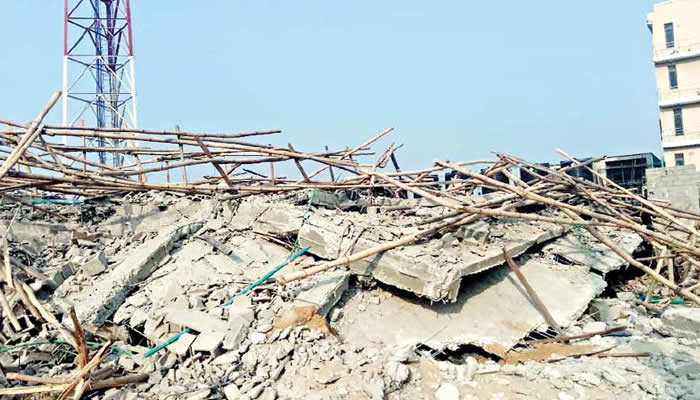The Nigerian Institution of Builders in Facilities Management has called for a collective approach from structural engineers, construction consultants, architects, and quantity surveyors in construction projects to end building collapse in the country.
They further emphasised the need for qualified professionals and adherence to building codes while engaging in construction processes.
The National Chairman of NIBIFM, Akpatre Ndaw, made the call at its 4th Facilities Managers Conference in Abakaliki on Tuesday, tagged, ‘FM Revolution in Nigeria: Stakeholders’ Role’.
“To end building collapse, we must avoid the use of unqualified contractors and substandard materials,” he advised.
At the conference, Ndaw said the programme was to reawaken the consciousness of the citizens on the need for proper facilities management and maintenance.
“When a structure is put in place, there must be regular management and maintenance for it to stand.”
Ndaw, therefore, noted that the evolution of facility management in Nigeria has transformed significantly, driven by various factors such as urbanisation, technological advancements, and changing workplace dynamics.
According to him, “The Nigerian facilities management market is expected to grow at a compound annual growth rate of 12 per cent from 2020 to 2025, driven by increasing demand for outsourced FM services.
“The market size is projected to reach N1.3tn by 2025, up from N700bn in 2020. The industry is adopting advanced technologies, including building information modelling and Internet of Things devices, to enhance operational efficiency. Seventy-five per cent of Nigerian organisations plan to invest in FM technology.
“The government, professional bodies and facilities managers play a crucial role in creating an enabling environment for FM through policies, regulations and infrastructural development,” Ndaw stated.
Also speaking, the President of the Nigeria Institute of Building, Alderton Ewan, said that the theme for the 2025 conference was both timely and critical as they navigated within Nigeria’s built environment.
He said, “In the last two decades, the concept of facility management in Nigeria has grown from being an emerging discipline to becoming an indispensable component of the life cycle of buildings and infrastructure.
“For Nigeria to experience a true facility management revolution, stakeholders must act decisively and collaboratively, including the government and regulatory authorities in construction processes.”















